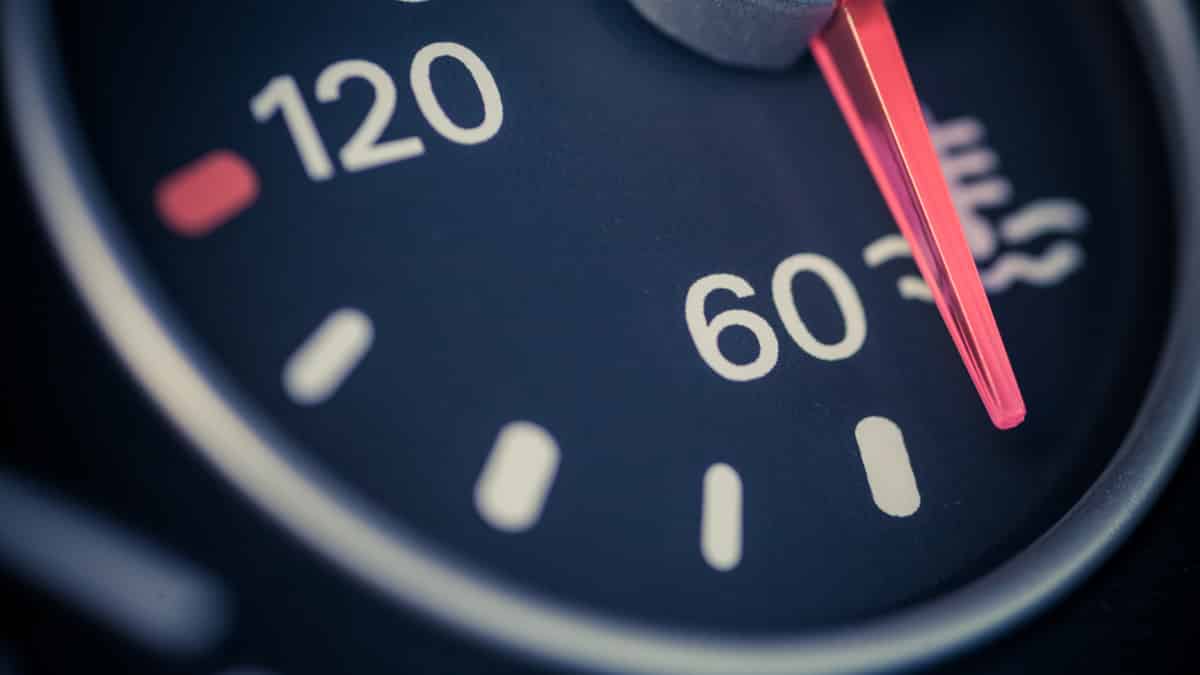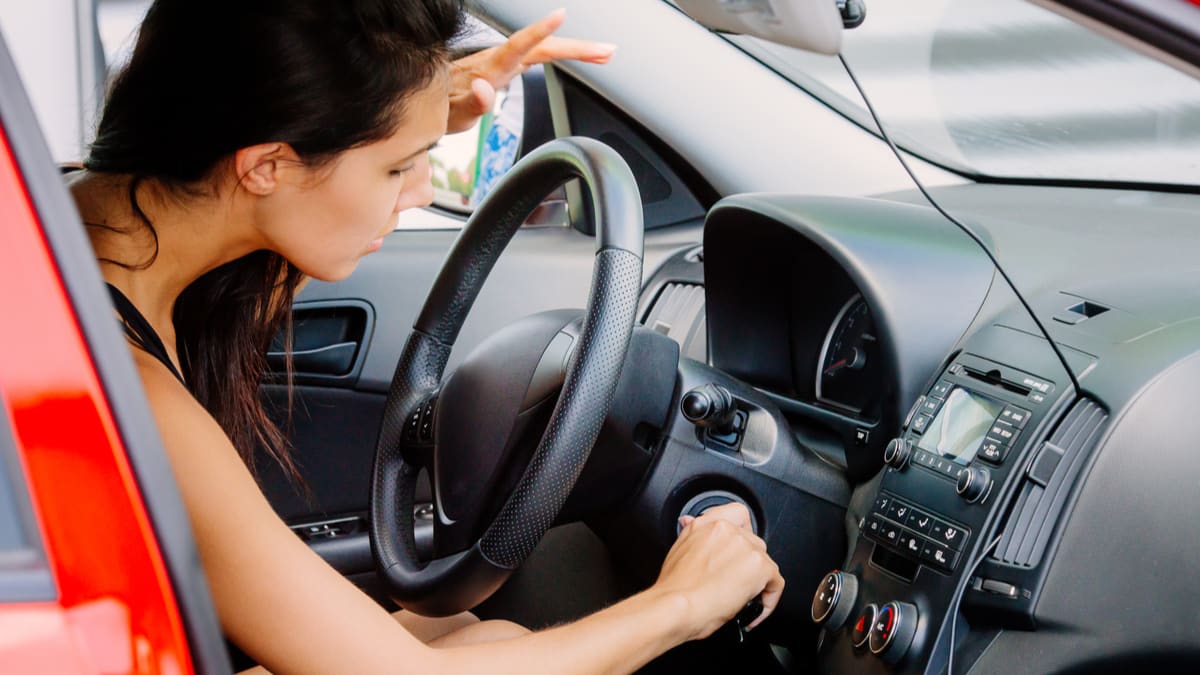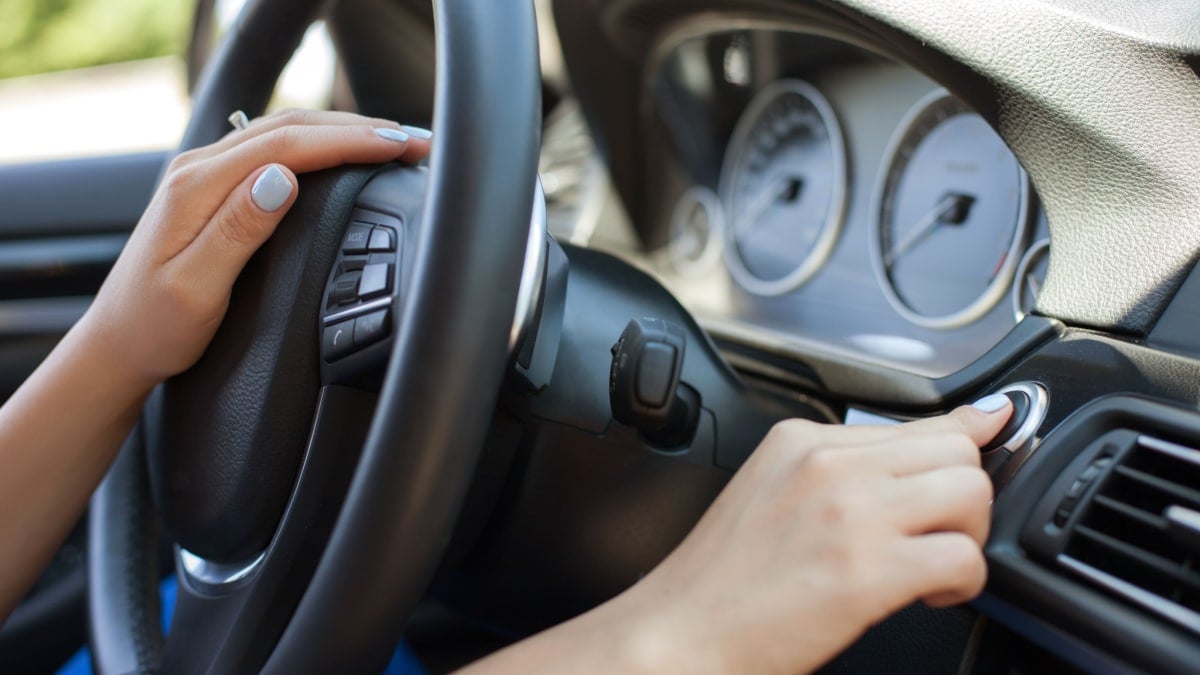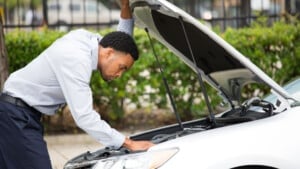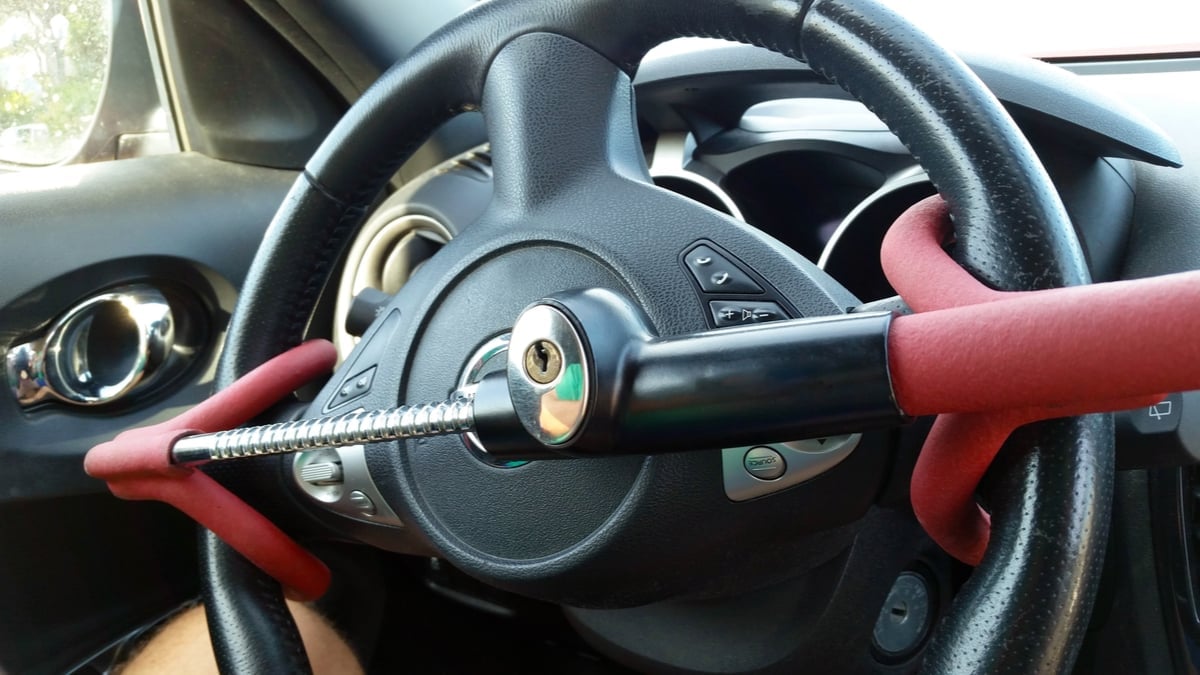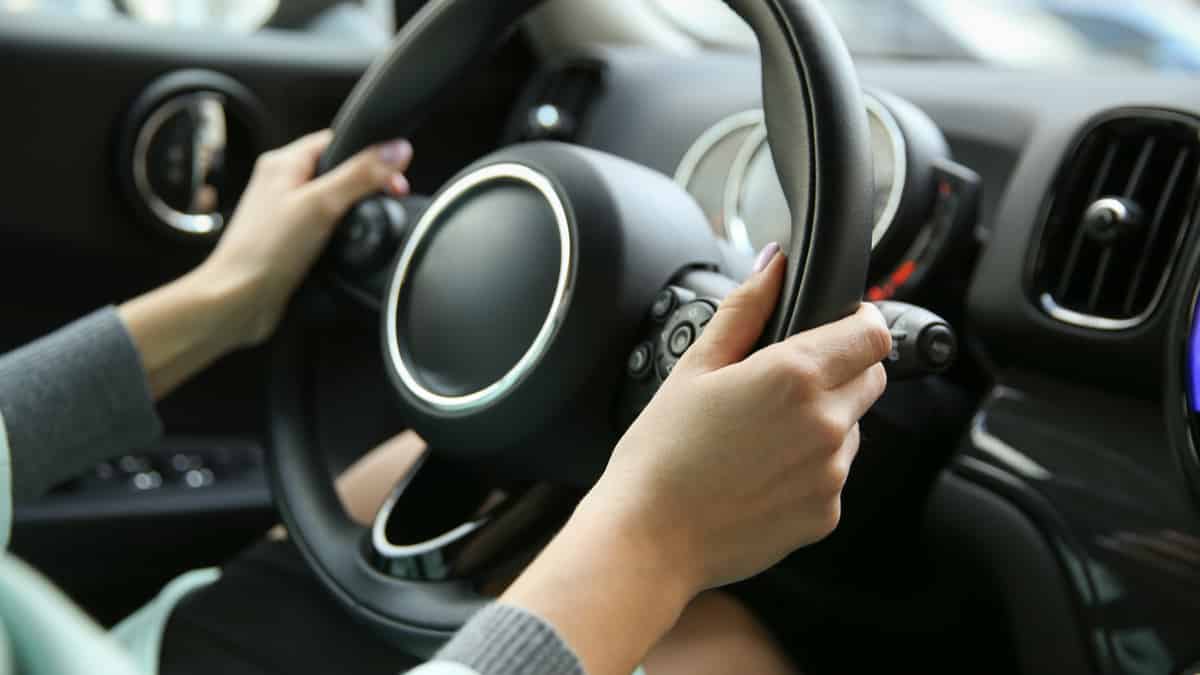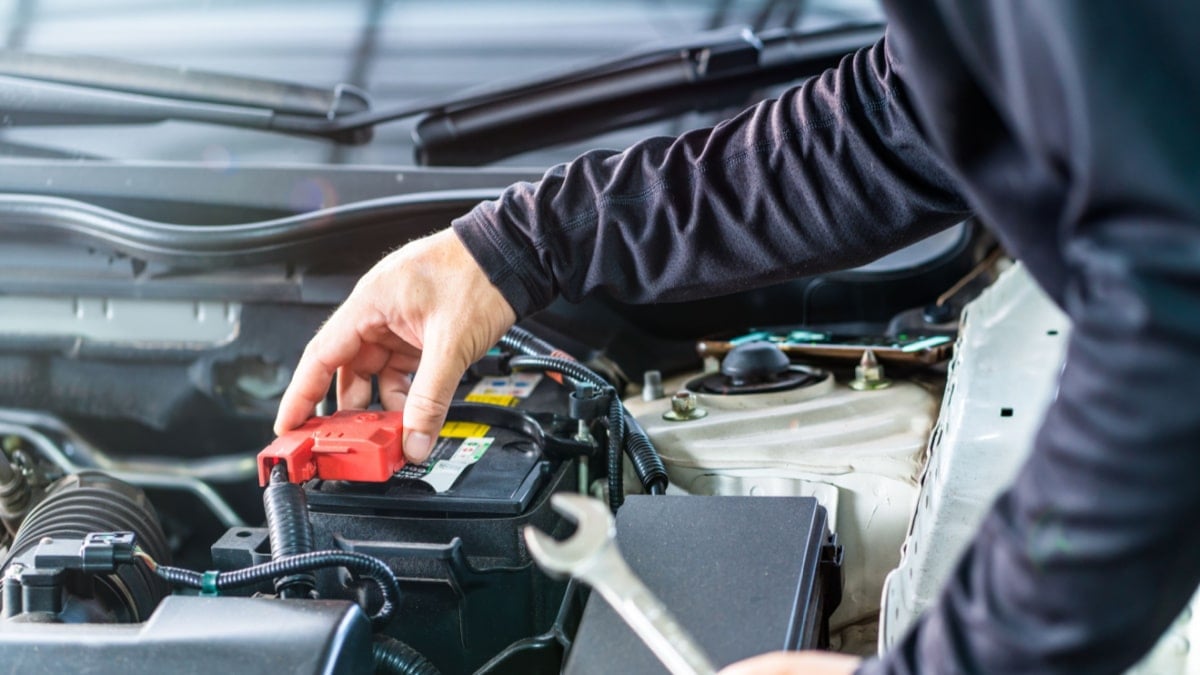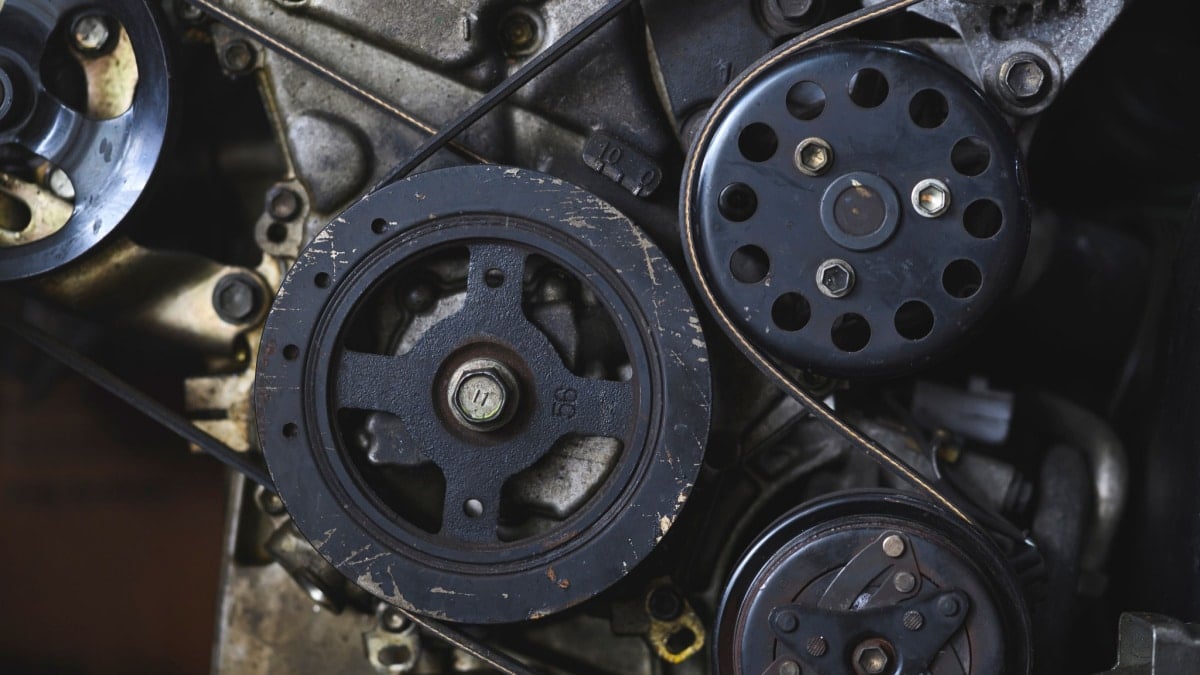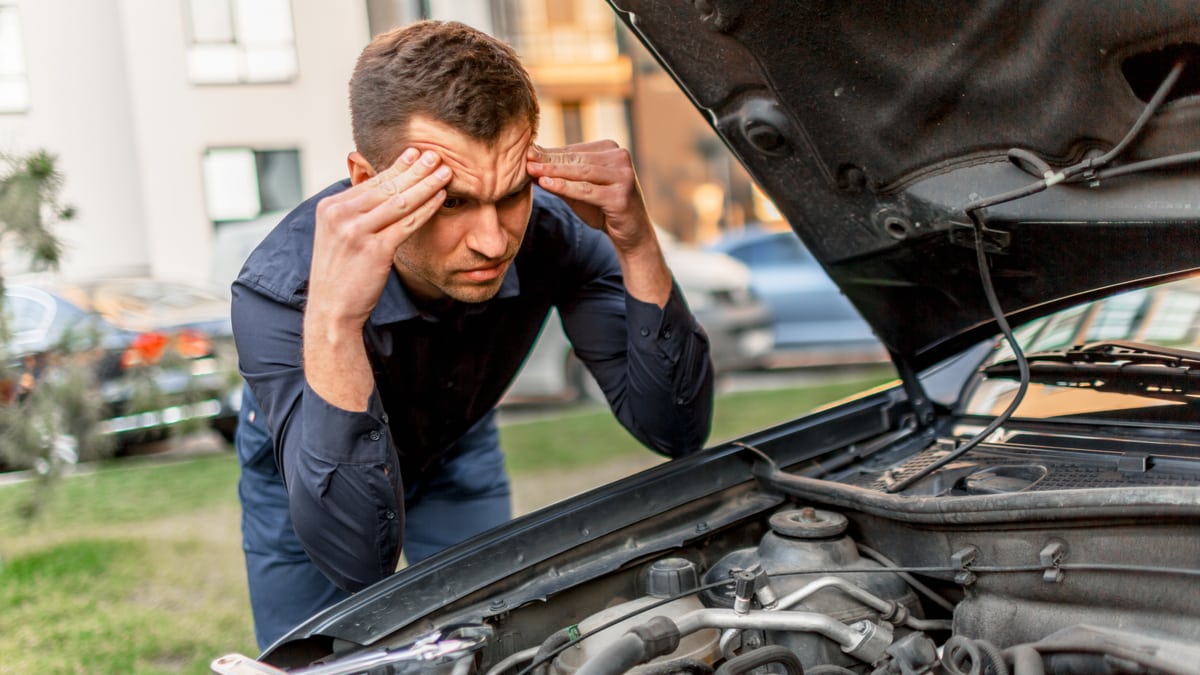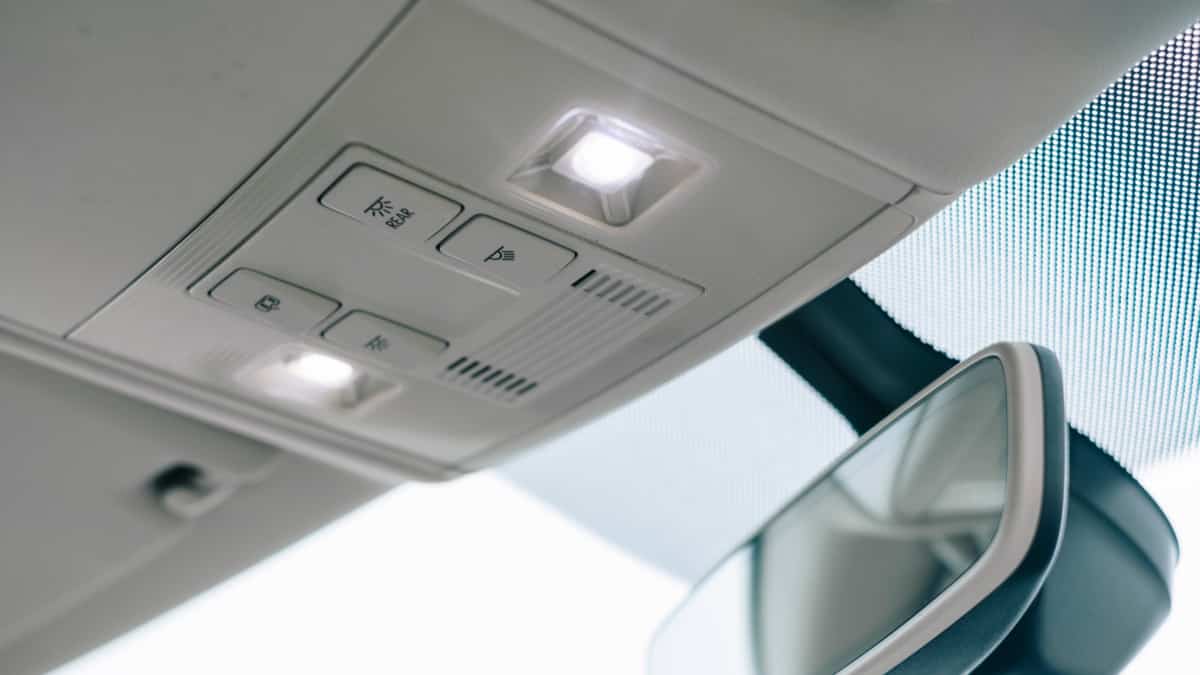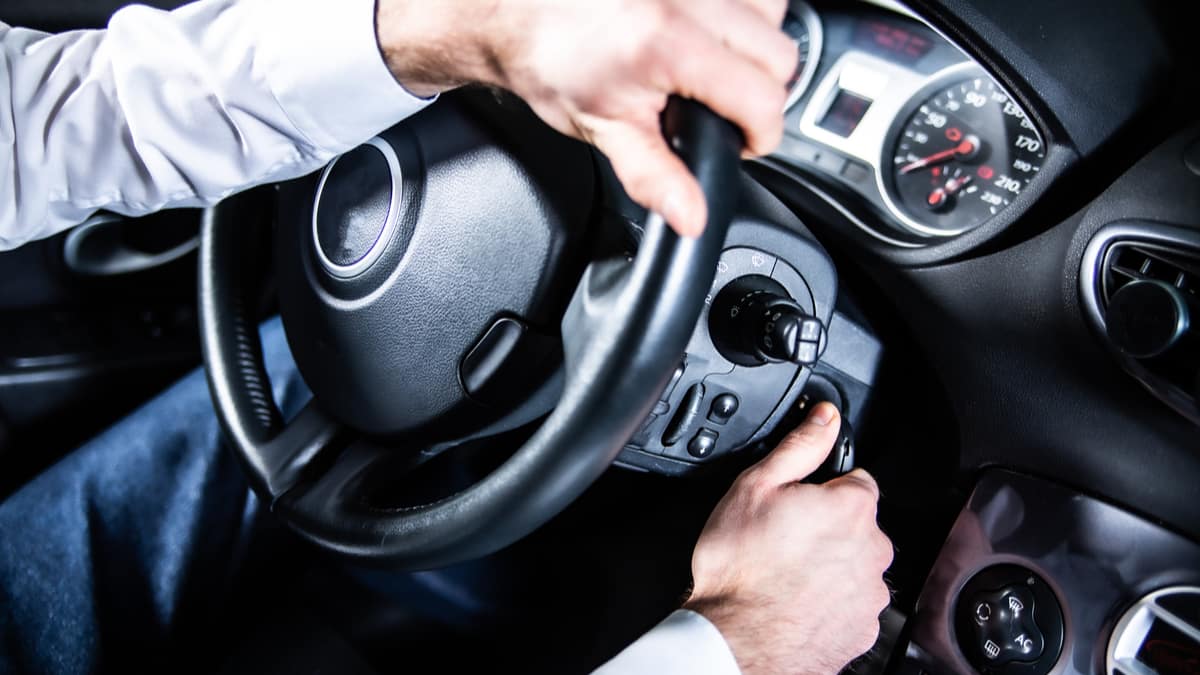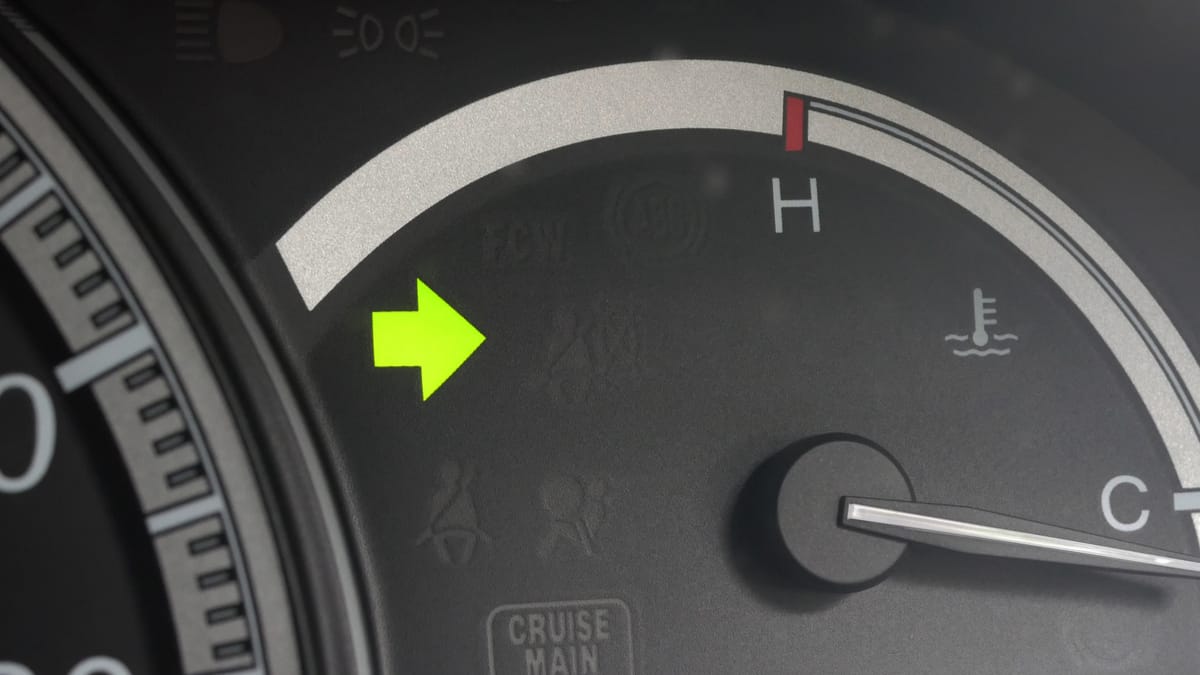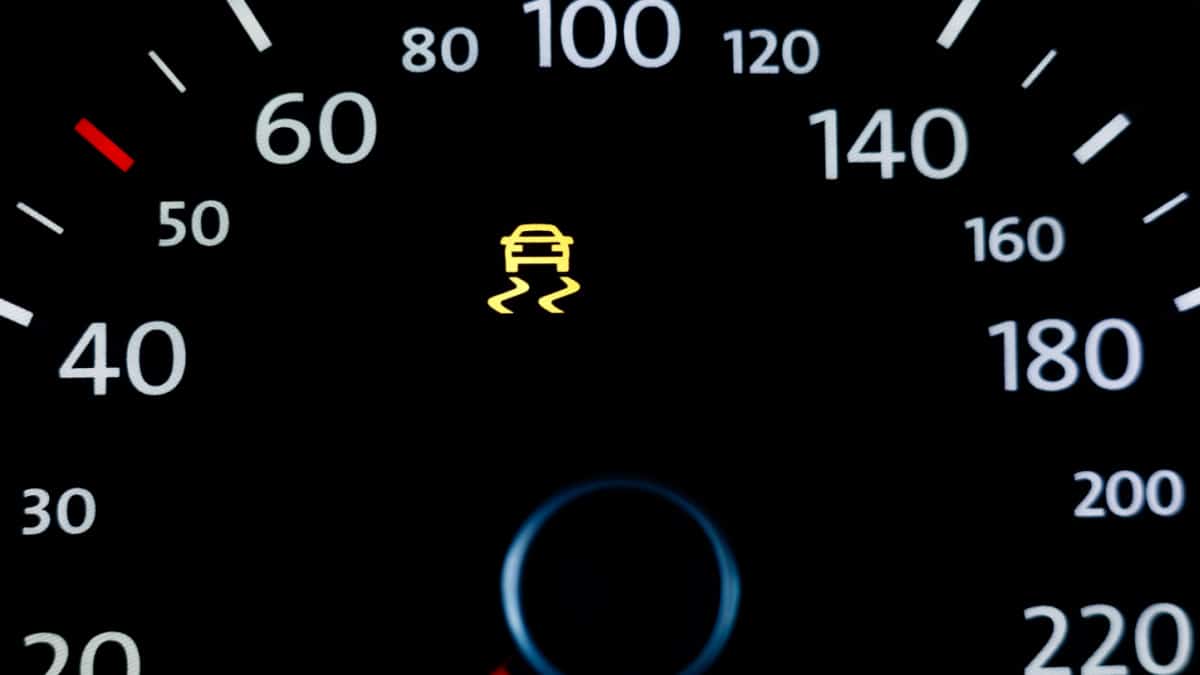Most drivers are used to their vehicle turning without making a sound. That’s the way it should be, and when your vehicle starts making noises as you turn, it’s a sign of a deeper problem that you need to investigate.
The longer you leave the problem unaddressed, the worse it’s likely to get. The good news is that you can diagnose the problem yourself if you know what you’re looking for. Sometimes the repairs can be as easy as adding some power steering fluid!
Below, I’ll break down some of the most common reasons your car might be making unusual noises when you turn!
9 Reasons Why Your Car Makes Noise When Turning
The most common causes of noises when turning are a bad coil spring, struts, or shocks. It could also be caused by a bad steering rack, tie rod ends, or worn ball joints. If you hear a growling noise when turning, it can be a bad wheel bearing.
These are the most common reasons, but they aren’t all of them. I will also go through a more detailed list of the nine most common reasons your steering wheel will make noises while turning – with a bonus tip at the end!
1. Broken Steering Rack and Pinion
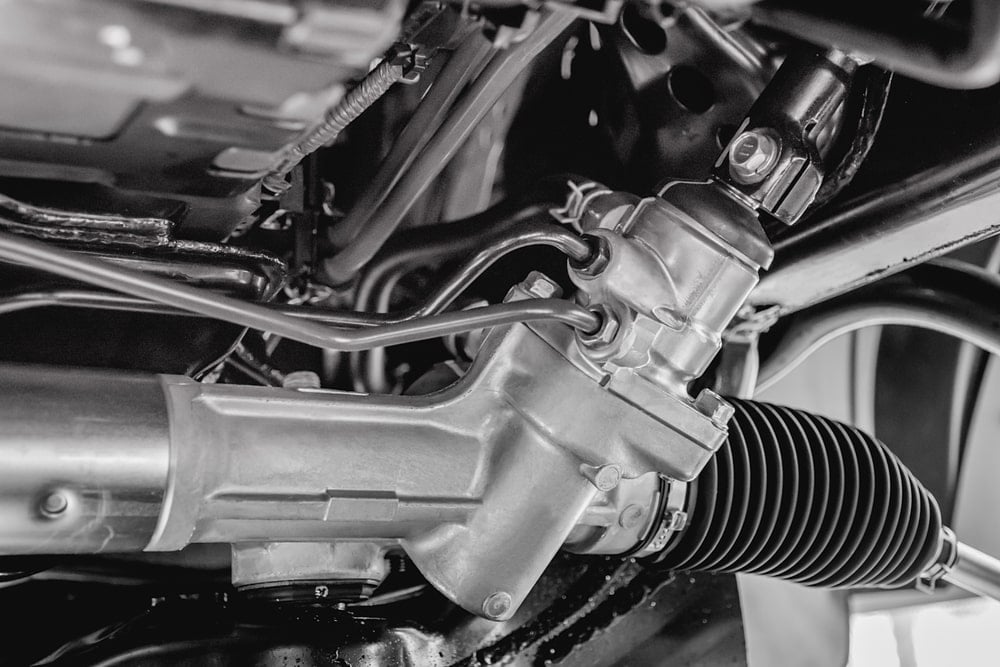
The largest component in your steering system is the rack and pinion. There are tons of different moving parts in it, and it’s not uncommon for it to wear out and need replacing. If your rack and pinion are wearing out, you’ll likely hear loud bangs after you turn.
Furthermore, if the problem gets bad enough, you’ll likely feel it in the steering column. All you might hear for less severe problems is a slight clicking coming from underneath your vehicle when you turn.
The steering rack is quite expensive to repair, so it is best to check the other components first.
2. Worn Struts or Shocks
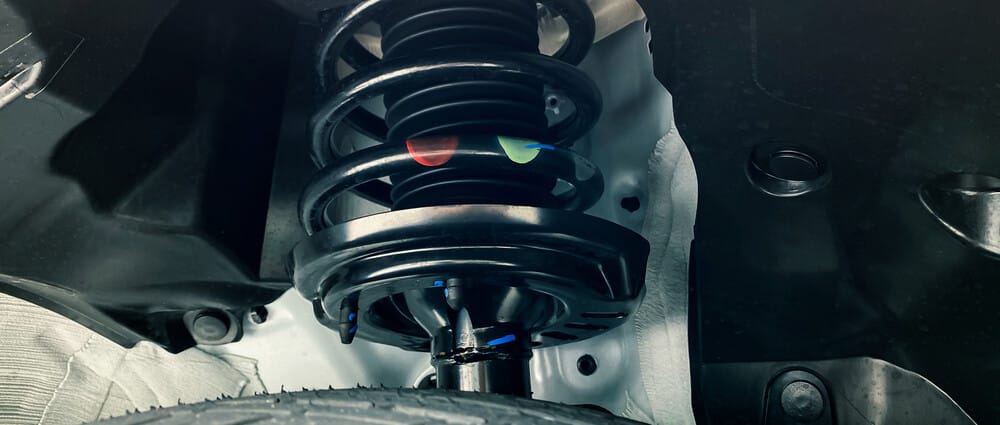
Just because these are suspension components doesn’t mean that they can’t be the cause of your noises when you turn the steering wheel.
First, their mounting might be loose or worn. If that’s the case, you’ll hear it slide around as you turn. Second, you actually use your suspension as you round corners and turn the wheel. Because of this, if there’s an underlying problem, you might hear it when you turn the wheel.
It is also very common that the coil springs are broken around the shocks, which will create a bad noise. It can also come from the top mount bearings at the top of the shock.
3. Worn Steering Column Bearing or Boot
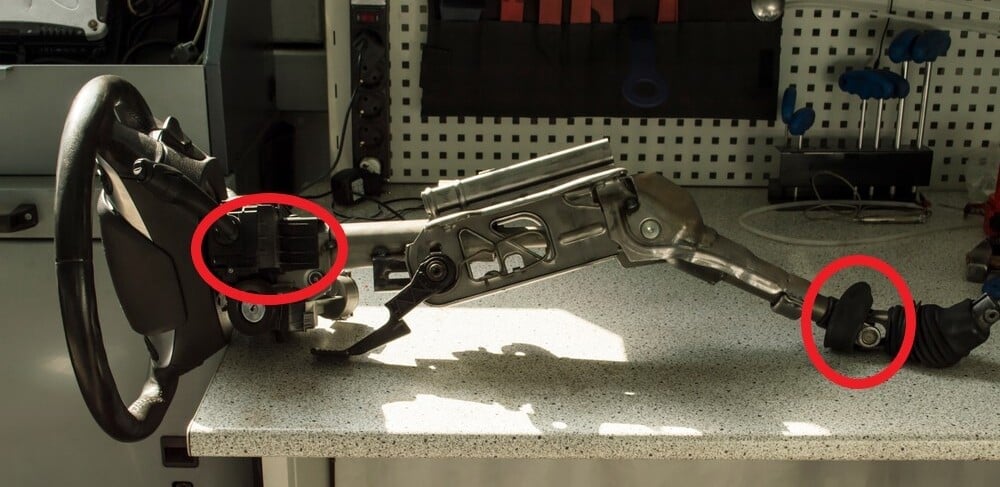
If you hear a squealing noise and it sounds like it’s coming from behind the steering wheel, it could be a worn or dry steering wheel bearing you hear. You may also notice excessive play in the steering wheel if the bearing is very bad.
This can often be solved by lubricating the bearing with grease or a spray with lubricating properties. You will also find a boot whose purpose is to prevent water from entering the cabin. If this boot is dry, it can also cause a squealing noise, so it is important to lubricate this part as well.
4. Loose or Damaged Tie Rod Ends/Boots
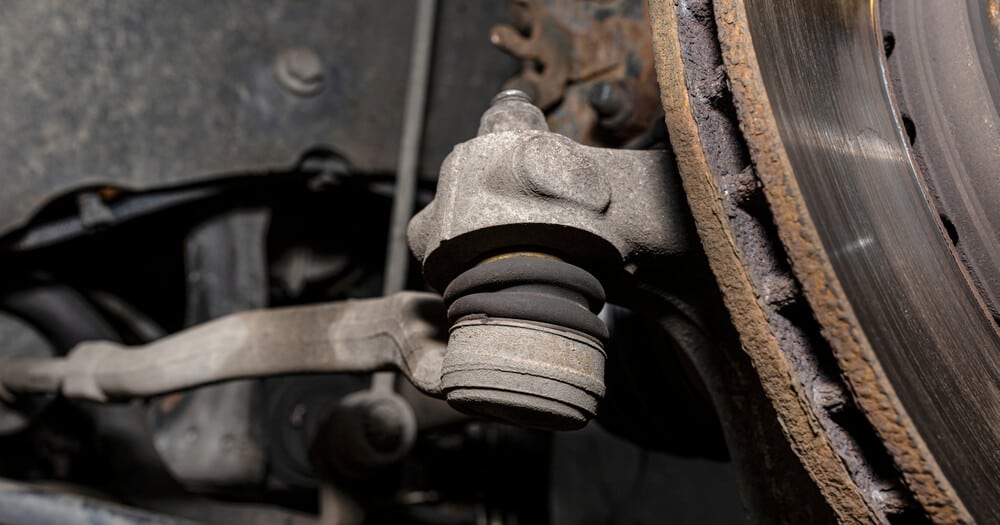
Your rack and pinion connect to your tires with tie rod ends, and those tie rod ends have rubber boots that can wear out and tear. If that happens, you can hear your tie rod bouncing around as the metal hits the hub. You’ll need to replace the tie rod end as soon as possible, or you’ll cause additional damage.
5. Worn Ball Joints
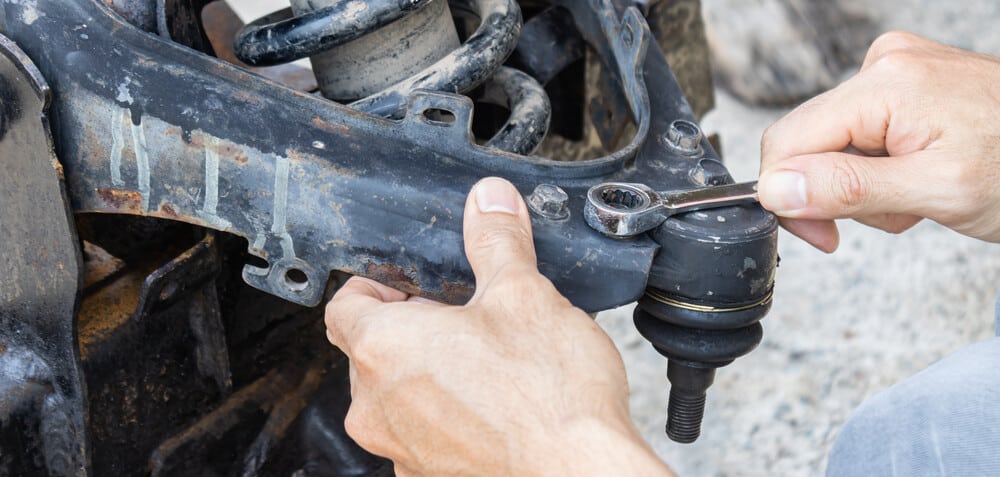
Ball joints work by swiveling whenever there is movement in the suspension or steering system. The two most common places you can find ball joints are on tie rod ends and control arms. If these ball joints wear out, they can start to move excessively or get stuck in a single position. Either problem will lead to excessive noises when you turn the wheel.
6. Worn Control Arm Bushings
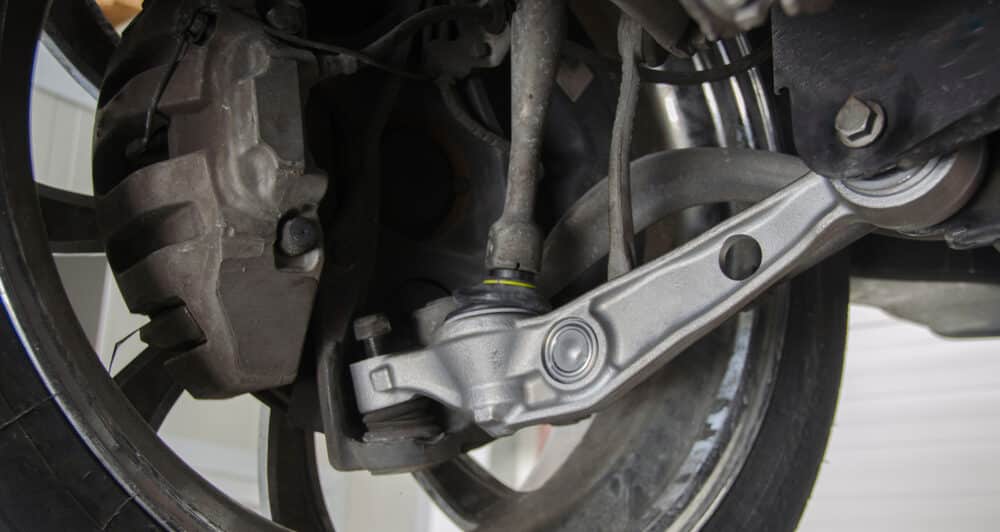
While the control arm is a part of your suspension system, that won’t keep it from making noises if some of the bushings are worn. As you turn, the control arm shifts around inside its housing, and you’ll hear the loud bangs as it moves around if the bushings are worn. If the problem gets bad enough, you’ll actually feel the entire vehicle shift as the control arms’ weight slams into the side of the housing.
7. Low or Old Power Steering Fluid
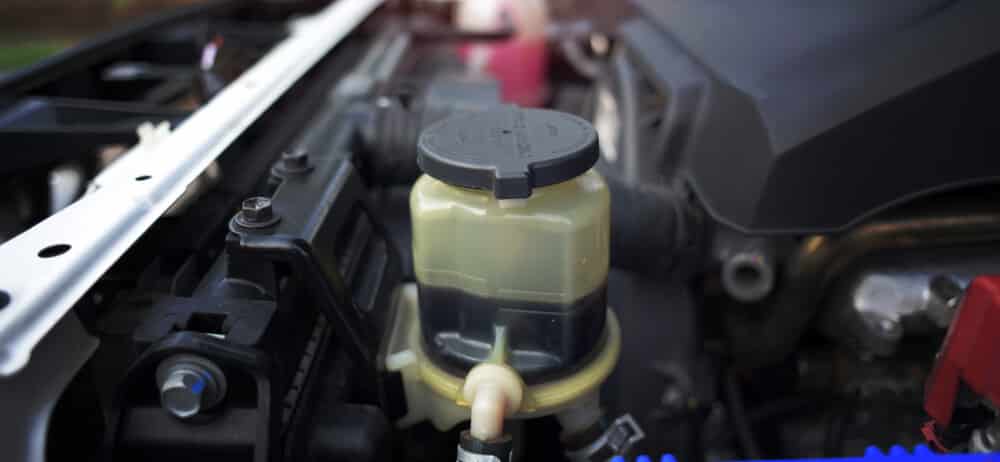
One of the most straightforward problems to fix that cause noise while you’re steering is a power steering pump without enough fluid. This is a closed system, which means it shouldn’t leak. But if there is a leak, one of the first signs will be noise as you turn.
However, before you just add fluid and call it good, you need to find and repair the leak.
8. Damaged Power Steering Pump
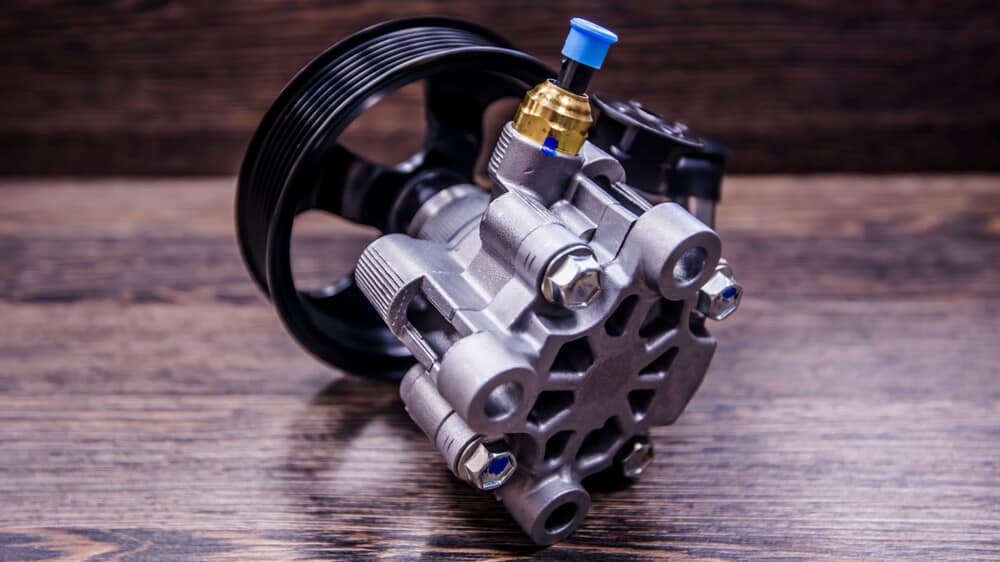
Power steering pumps help make turning the wheel easier as you drive, but they can get rather noisy as they start to fail. If you hear any noises coming from the top of your engine bay as you turn, there’s a good chance it’s coming from the power steering pump.
9. Bad Wheel Bearing
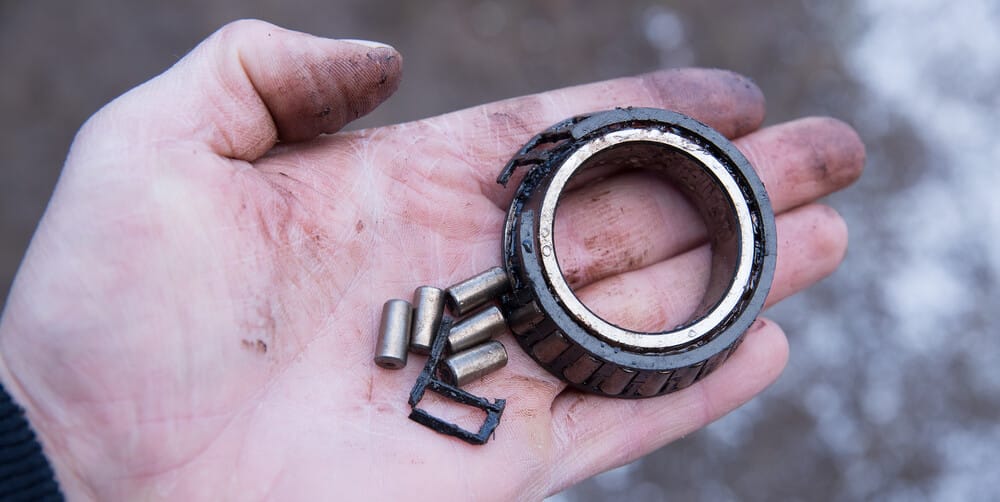
If you hear a whirring sound while driving at higher speeds and turning the steering wheel, it might be due to a bad bearing. When you turn your car, you are putting pressure on the outer wheel bearing. If you have a bad bearing, the sound will get louder as you put pressure on the bearing. Find out more here: Wheel bearing symptoms.
Bonus Tip – Check the Obvious
Before you take your vehicle to the mechanic, do yourself a favor – check under your seats and throughout your cab to see if anything might be shifting around while you drive.
As an experienced mechanic, I can’t tell you how many times I’ve seen a vehicle come in for a mystery noise only to discover an empty water bottle or other miscellaneous item banging around, creating the noise.
It might seem obvious, but when you get worked up about a potential problem, you often skip right over the most likely cause.
Steering Mechanical Breakdown
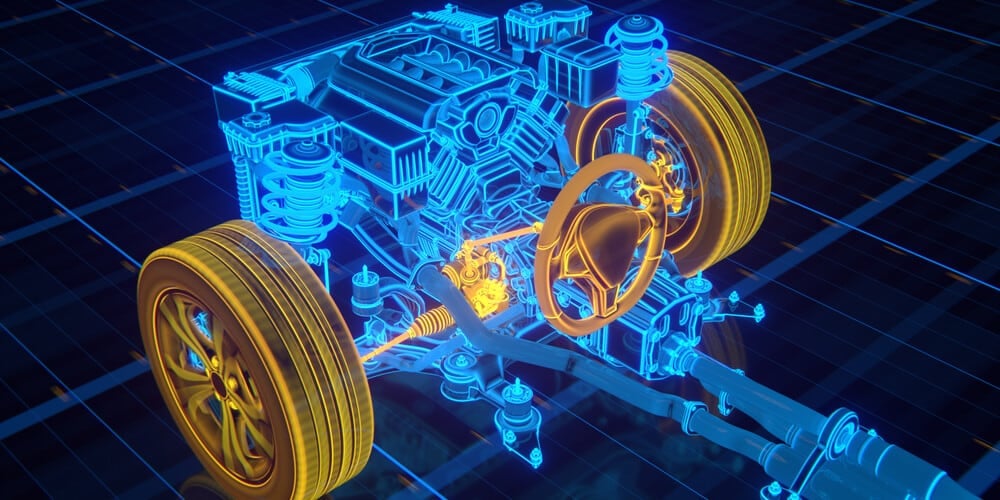
Your steering wheel is just the first step in a long line of components that work together to turn the tires. The steering wheel itself is attached to the steering column, which connects to the rack and pinion.
As you turn the wheel, the steering column spins, which pushes the rack and pinion one way or the other. The rack and pinion have a tie rod end attached to each side, connecting to your vehicle’s hub.
Each of these components has rubber bushings wherever two components meet to prevent a metal-on-metal contact (which can wear down the actual parts). However, as these bushings wear down, you’ll start to notice excessive movement in the system and hear noises as things shift around.
Keep in mind that you’re putting a lot of force on your vehicle when you turn the wheel while driving. This force can shift around all sorts of components in your vehicle, the most common being suspension components.
Summary
While there are tons of problems that can lead to your steering wheel making noises as you turn, you must get them checked out and repaired as soon as possible. The longer you let a problem go, the worse it will become.
Remember that bushings and boots are there to protect the more expensive components around them. When they wear out, they aren’t doing their job, which can lead to more expensive damages in short order.
Categories: Driving, Troubleshooting

